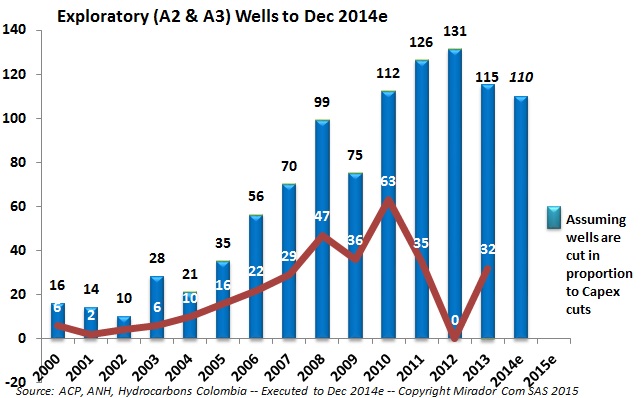When last we left the Fracker Tracker in early-December, the Net Promoter Score (NPS) was near an all-time high. But over the holidays while MinMinas and the National Hydrocarbons Agency (ANH) were enjoying vacation, the environmentalists grabbed the column inches and the NPS tracker is now at an all-time low.

The geographic band from Cauca through Huila and into southern Meta and northern Caqueta continues to be a concern. The overall count increased to 24 this week, below the long-term average but above recent averages.
Ecopetrol (NYSE:EC) says that it has held workshops to train local leaders and residents in 332 municipalities on how to adequately react to an emergency, a program that is now in its third year.
The use of US Dollars as a reference for biofuels has meant a substantial increase in the cost of these fuels, raising doubts as to whether increasing the mixture of biofuels in diesels or gasoline is an economically sound decision.
As it promised in its summary of priorities for 2015, the USO has taken a stronger tone against US oil services firm Halliburton (NYSE:HAL), accusing the Company of targeting unionized workers and indiscriminate firings.
A seismic exploration program that kicked off in November in Putumayo has divided the Awa and Nasa indigenous groups, with the later fiercely opposed and the Awa in favor, and led to physical confrontations and a suspension of exploration activities.
President Juan Manuel Santos said via a televised address that he has told his negotiators to start discussing an indefinite bilateral cease fire with the Farc, and assured that 2015 “could be the year that the conflict stops”.
Angela Cadena, the director of the government’s mining and energy think tank, the Mining Energy Planning Unit (UPME), is on her way out, opening a key vacancy in an entity that serves to fill in the informational holes and create a long term vision for the industry.
The international oil price scenario might be grim, but Ecopetrol has some good news to celebrate as its Chichimene Field reached a new daily production record. But in the current price scenario, how important will this milestone be?

With an estimated drop of 50% in 2015, budgets for exploration activities are feeling a strong pinch from the low international oil prices, bringing long term issues for Colombia’s oil industry.